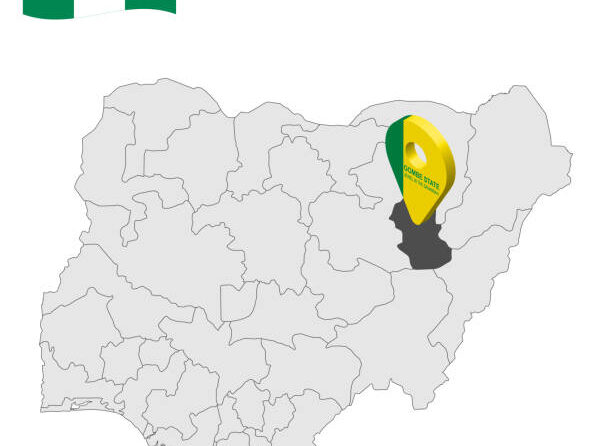Foreign investors have several options in Nigeria, the powerhouse of the African continent. There are several reasons for investing in Nigeria, including its largely developing consumer market, plenty of natural resources, and quickly growing IT industry. But there are some difficulties to overcome, just as with every investment location.
We will discuss why Nigeria is considered the next frontier for international investors as an insider with expertise in the Nigerian business scene. We will review the options open to investors, and the difficulties they will face, and provide insights from an insider’s experiences in this post. This article will give you a thorough overview of investing in Nigeria, whether you are an experienced investor or just getting started. Explore the country of the rising sun now by jumping in!
The Investment Possibilities in Nigeria
There are many benefits to investing in this West African country, and Nigeria’s economy is rife with prospects for international investors.
Nigeria has a populace of more than 200 million people with a large and expanding consumer market. Consequently, there is a large market for products and services, especially among the extending working class and its rising standard of life. Nigerians are taking on versatile technology and e-commerce business to an ever-increasing extent, which offers a valuable open door for the people who put resources into these enterprises.
Nigeria has an enormous buyer market along with bountiful assets. The nation produces a lot of oil and gas and has massive deposits of minerals such as tin, iron metal, coal, and limestone. A significant economic player, the agricultural industry offers opportunities for investments in fields including food processing, packaging, and export.
Nigeria’s quickly developing IT industry also offers excellent potential for investors. One of Africa’s fastest-growing IT sectors is found in Nigeria, where businesses like Flutterwave and Jumia are rising quickly. Fintech, e-commerce, and other tech-related businesses provide massive possibilities for investment.
Together, these elements make Nigeria a desirable place to invest. However, there are some difficulties with investing in Nigeria. First, let us examine the Nigerian consumer market in more detail and its prospects for investment.
Investing in Nigeria’s Difficulties: Navigating the Regulatory Environment, Cultural Differences, and Risks
While Nigeria gives several potentials for international investors, it also poses certain specific hurdles that investors must overcome to prosper in the market.
Navigating Nigeria’s regulatory environment.
Navigating Nigeria’s regulatory framework is one of the most challenging obstacles for international investors. The regulatory system in the nation may be complicated and bureaucratic, making it difficult for investors to get their companies up and operating. This Government permission may be necessary for certain businesses, and the rules may change often, making it challenging for these businesses to stay up and running.
Cultural differences
Cultural differences might sometimes be difficult for overseas investors. Nigeria has a distinct corporate culture that may be difficult for foreigners to understand. In Nigeria, strong local ties are essential for success. Investors that make an effort to learn about the local business culture and form strong ties with local partners have a better chance of success in the market.
Potential risks associated with doing business in the country.
Another barrier for international investors in Nigeria is the possible danger of conducting business in the country. Security is a major worry, especially in some parts of the nation. The Boko Haram insurgency, for example, has posed considerable security problems for firms operating in the area. Investors are also concerned about political insecurity and corruption.
Despite these obstacles, there are techniques that international investors might use to flourish in Nigeria. Partnering with local businesses that have strong networks and a grasp of the local business climate can be a huge benefit. It is also critical to remain current on regulatory changes and to engage with skilled legal and accounting specialists who can assist you through the system.
Although investing in Nigeria presents certain hurdles, the potential returns are substantial. Foreign investors may flourish in this lively and rising market by taking the time to understand the local business culture, forming good connections, and keeping up to speed on legislative developments.
Nigeria’s Economic Potential for Investors
Are you an international investor seeking the next big chance? Nigeria is one of the right places to look! This country in West Africa is a top choice for foreign investment because of its enormous economic potential. Let us examine in more detail what makes Nigeria a desirable travel destination.
Abundant Natural Resources
Nigeria’s major assets include oil, gas, minerals, and agricultural land. Nigeria, one of Africa’s biggest oil-creating nations, has a strong petroleum industry that contributes significantly to Nigeria’s Gross domestic product. Nigeria likewise contains huge regular assets like gold, iron mineral, and tin, as well as immense stretches of fruitful land suitable for farming and other agribusinesses.
Growing Middle Class
Nigeria’s expanding middle class and rising buying power make the country a desirable market for consumable products and services. Nigeria has a large and diversified consumer market, offering tremendous economic potential.
Strategic Place
Nigeria is a major regional commerce and investment magnet because of its position in West Africa. The nation has easy access to the larger West African market with its shared borders with Niger, Chad, Cameroon, and Benin. Furthermore, Nigeria’s position on the Atlantic coast makes it simple to move commodities there and to reach markets elsewhere.
Large and Young Population
Nigeria has the largest population in Africa and one of the youngest populations in the whole globe. Nigeria has a sizable and extending labor force that offers high possibilities for firms hoping to take advantage of a young and enthusiastic labor force, with over 60% of the populace younger than 25.
In summary, Nigeria is an incredible spot for foreign investment because of its abundant natural resources, expanding middle class, strategic position, and sizable and youthful population. Foreign investors will have more chances as long as Nigeria’s government keeps enacting measures to enhance the business environment. Do not pass up the opportunity to get involved in Nigeria’s economic development narrative!
Favorable investment climate

Nigeria is not only the next frontier for international investors because of its economic potential. The government has various measures to promote and assist foreign investors, making the investment environment particularly appealing.
Ease of Doing Business
In recent years, Nigeria has significantly improved the business climate there. The World Bank’s 2020 Doing Business Report ranks Nigeria at position 131 overall out of 190 nations, an increase of 15 spots. The introduction of an online company registration portal, lowering registration costs, and the creation of a one-stop shop for business registration are just a few of the measures the government has set to make it simpler for firms to operate.
Investment Incentives
The Nigerian government provides a variety of incentives to attract foreign investment, including tax holidays, import duty exemptions, and profit repatriation. Additionally, the nation is home to several special economic zones that provide additional benefits such as lowered tax rates, access to infrastructure, and faster regulatory procedures.
A thriving financial Sector
Various foreign banks conduct business activities in Nigeria, which has an active and stable financial industry. Various initiatives have also been carried out by the Central Bank of Nigeria to help SMEs and energize financial incorporation. Foreign investors needing to put resources into Nigeria have various potential outcomes, including stock investments, bond investments, and real estate investments.
Government Reforms
The Nigerian government has established various measures to improve the business environment and attract international organizations. The making of Nigerian Investment Advancement Commission (NIPC), which is accountable for advancing and sorting out investments in the nation, is one of them. Moreover, the public authority has begun various projects to make work simpler, including the National Activity Plan on Simplicity of Carrying on with Business and the Presidential Enabling Business Environment Council (PEBEC).
Nigeria has a few guidelines and endeavors set up to draw in and support foreign investment, which makes the general business environment very great. In any case, Nigeria has its portion of troubles with investment, very much like some other nations.
Conclusion
Nigeria is undoubtedly a country with much potential for international investment. Nigeria is well-positioned for even higher economic growth and development because of its abundant natural resources, expanding middle class, strategic location, youthful population, attractive investment environment, and previous successful foreign investments.
While there are undoubtedly obstacles to investing in Nigeria, such as perceived corruption, infrastructural gaps, and security worries, the potential returns surpass these obstacles by a wide margin. The nation is making significant strides in fostering a climate that is more welcoming to investors due to the government’s dedication to reforms, enhancing security, and modernizing infrastructure.
Nigeria should be on your radar if you are a foreign investor seeking the next great thing. The nation has a unique chance to seize an expanding economy from the outset thanks to its optimistic economic outlook and business-friendly legislation.












